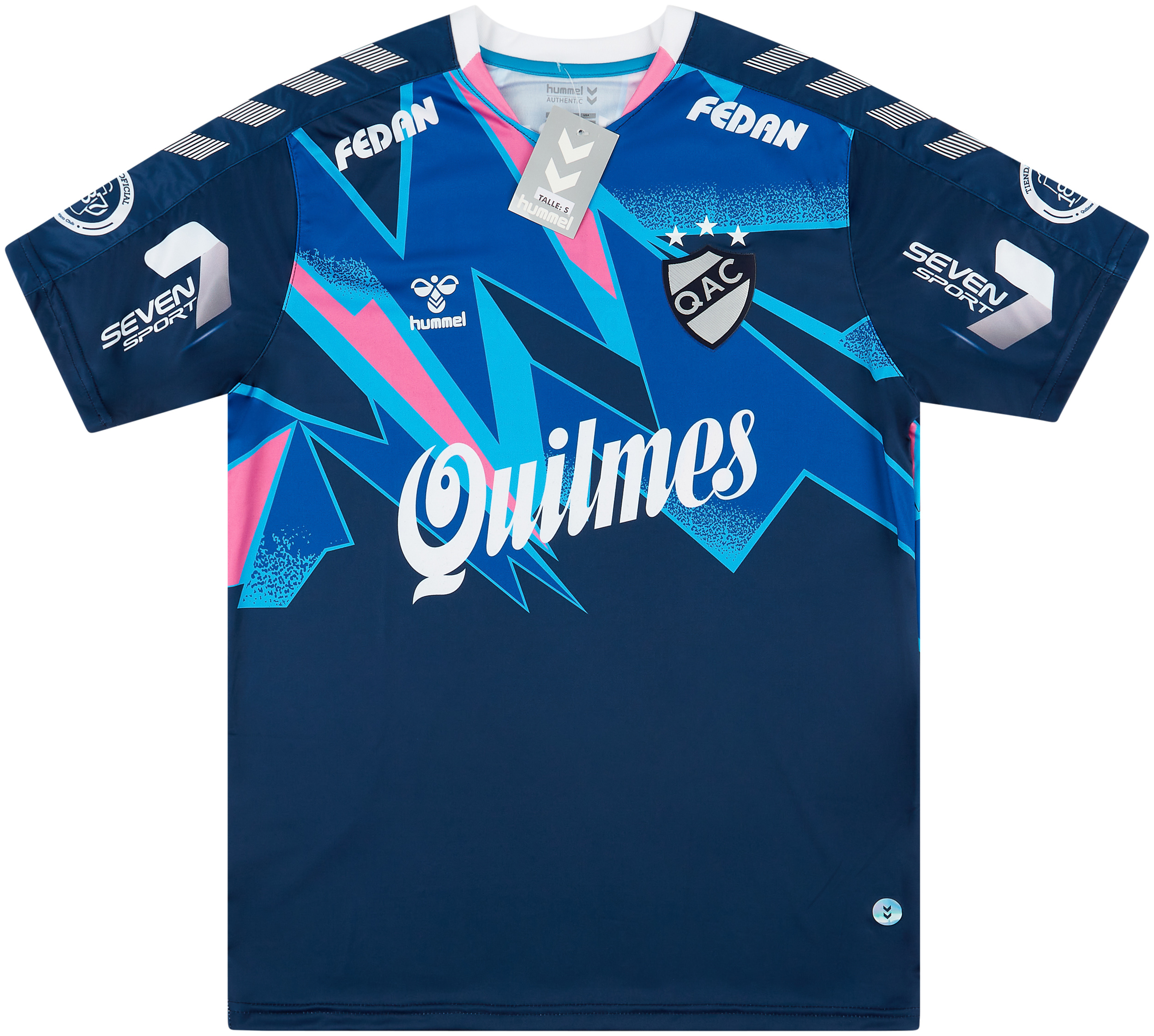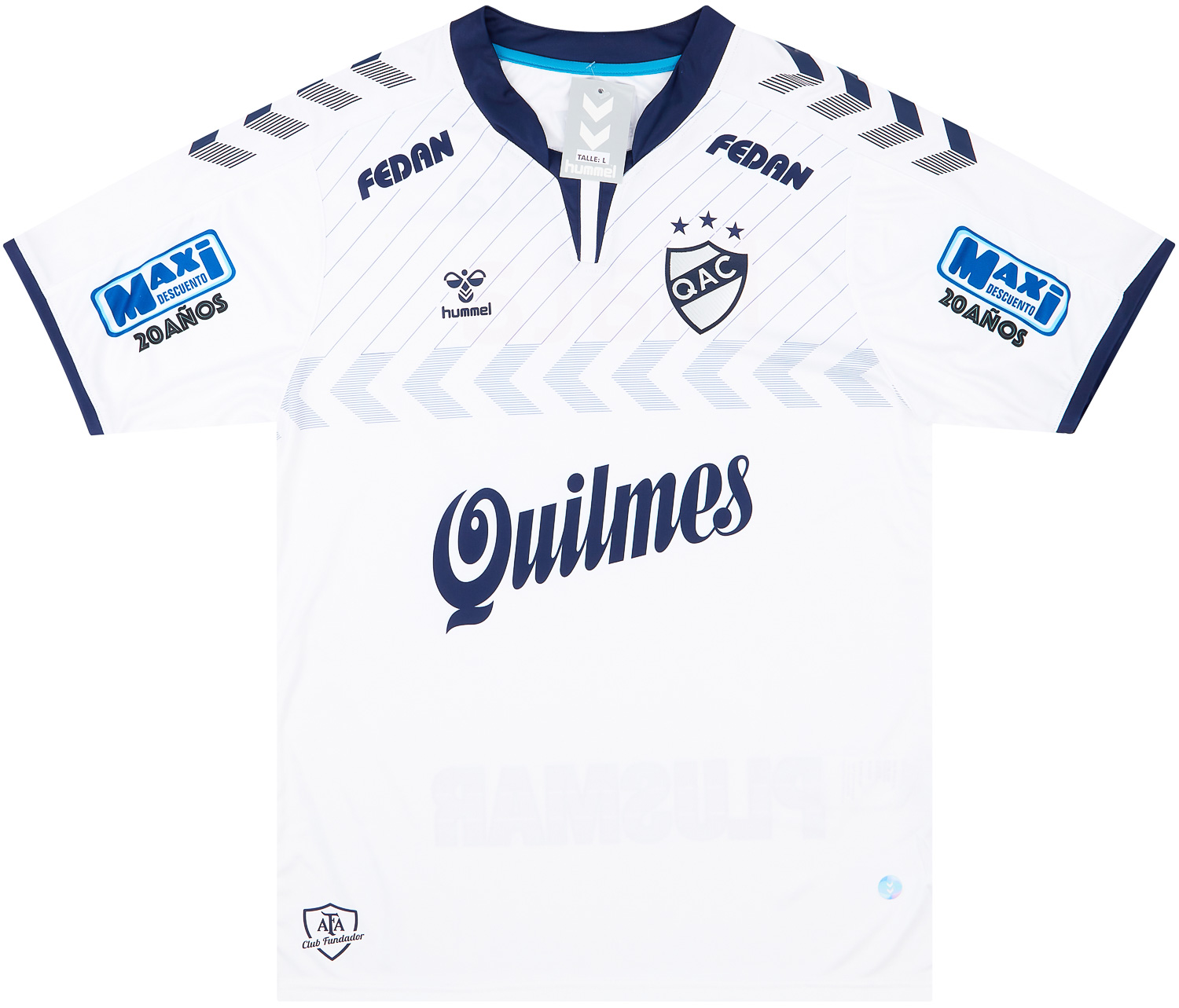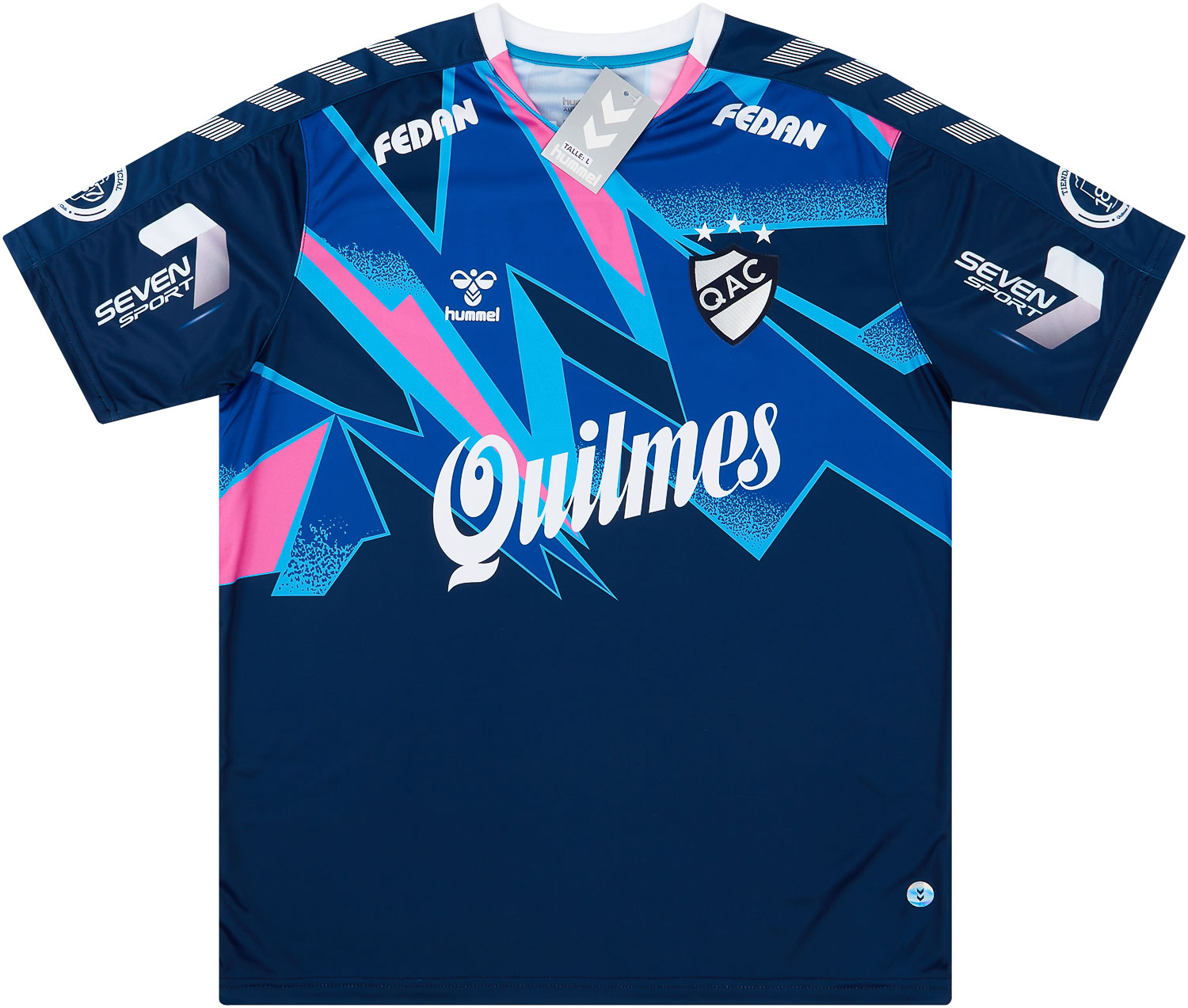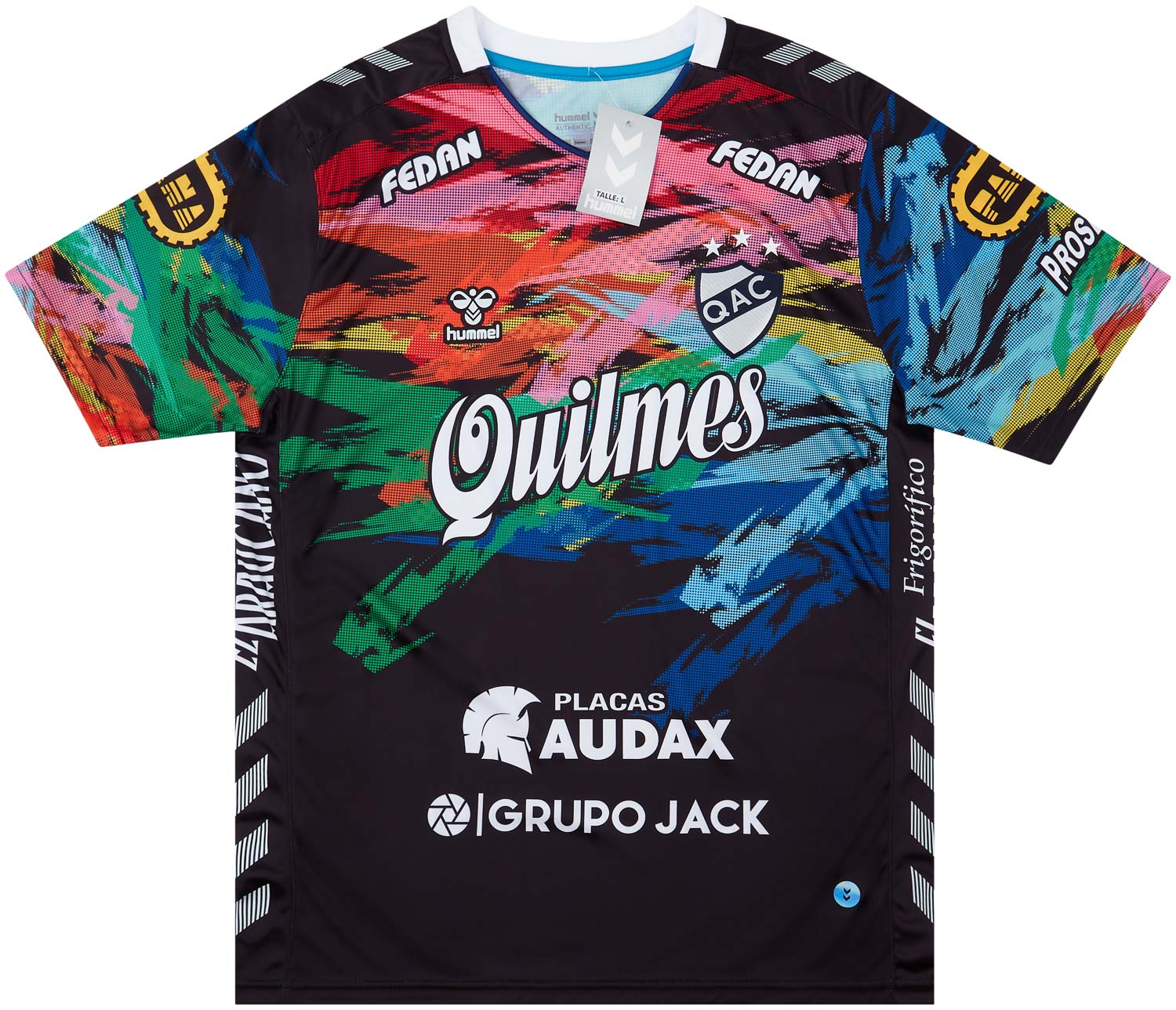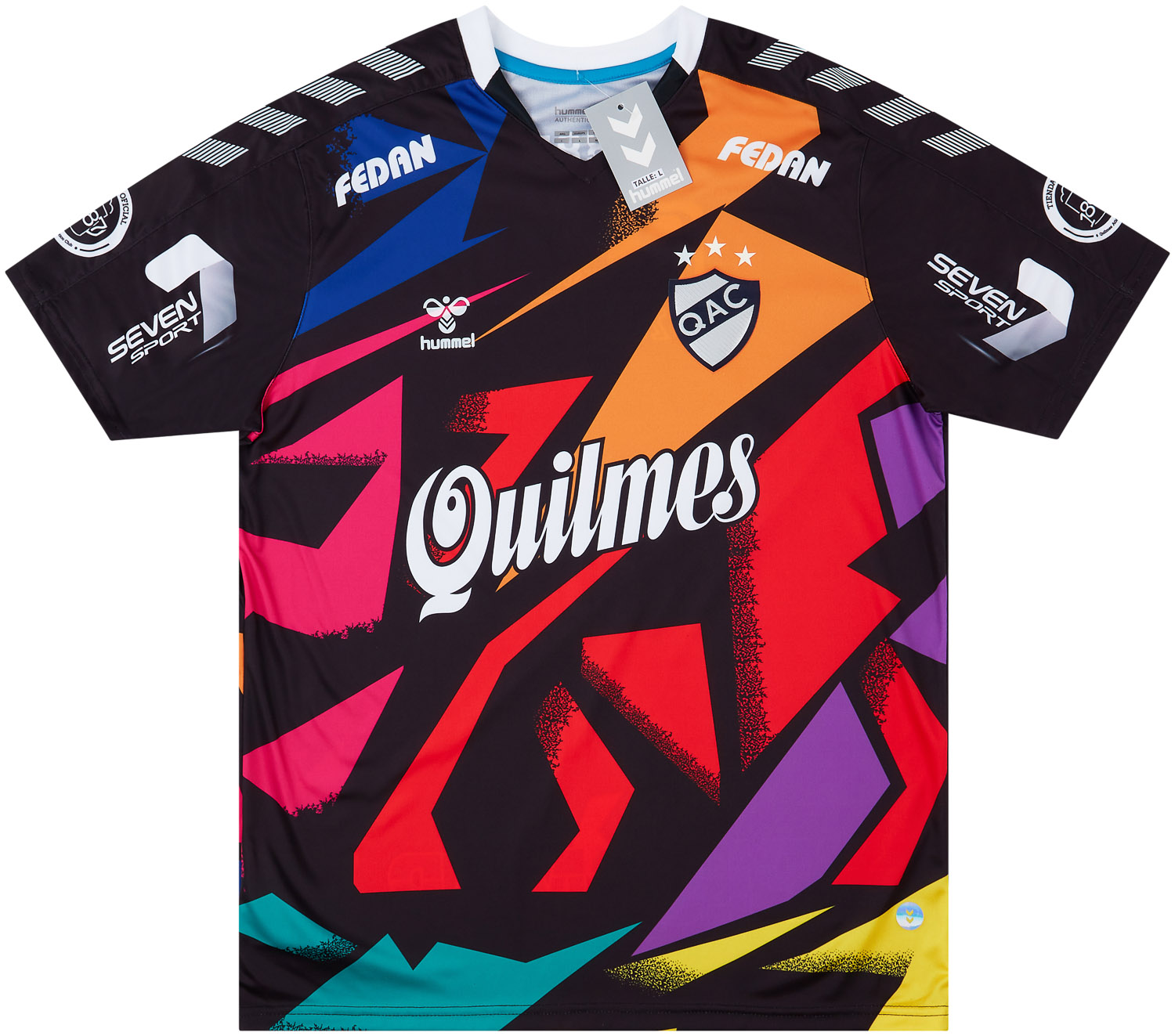Quilmes
Introduction Quilmes Atletico Club, commonly known as Quilmes, is a storied football club located in the city of Quilmes, Argentina. Founded in 1887, it is one of the oldest sports clubs in Argentina and holds a strong cultural identity that resonates with its supporters. Quilmes has developed a passionate fanbase, known collectively as “Los Cerveceros” […]
2004-05 Quilmes Away Shirt - 9/10 - (XL)
148.99£ - ca: €176
2002-03 Quilmes Home Shirt - 9/10 - (XXL)
118.99£ - ca: €140
2021 Quilmes Atletico Away Shirt (S)
70.99£ - ca: €84
2019-20 Quilmes Atletico Home Shirt
70.99£ - ca: €84
2018-19 Quilmes Atletico Away Shirt
58.99£ - ca: €70
2020-21 Quilmes Home Shirt (XXL)
58.99£ - ca: €70
2021 Quilmes Atletico Away Shirt
53.99£ - ca: €64
2019-20 Argentino de Quilmes '120 Years Anniversary' Away Shirt
51.99£ - ca: €61
2022 Quilmes GK Shirt
47.99£ - ca: €57
2023 Quilmes GK Shirt
47.99£ - ca: €57
Introduction
Quilmes Atletico Club, commonly known as Quilmes, is a storied football club located in the city of Quilmes, Argentina. Founded in 1887, it is one of the oldest sports clubs in Argentina and holds a strong cultural identity that resonates with its supporters. Quilmes has developed a passionate fanbase, known collectively as “Los Cerveceros” (The Brewers), reflecting the city’s historical link to the beer industry. With a blend of historical significance, competitive spirit, and local pride, Quilmes continues to be an influential presence in Argentine football.
Club History
Quilmes was established on March 2, 1887, originally as an athletic club before focusing primarily on football. The club played its first official match in 1903, marking the start of its involvement in competitive football. As one of the founding members of the Argentine Football Association (AFA) in 1893, Quilmes has deep roots in the early structure of Argentine football. Over the years, the club has experienced various ups and downs, including periods of great success in the top tier of Argentine football and subsequent relegations, showcasing the dynamic nature of professional sports.
The club’s stadium, Estadio Centenario, opened in 1960 with a capacity of 30,000, is an emblematic venue where many memorable matches have taken place. With significant upgrades and renovations throughout the years, it serves as a focal point for the club and its community. Notably, Quilmes took part in the first-ever official match with the current ten-a-side rules in Argentina back in 1906, helping to shape the football landscape of the nation.
Achievements
Quilmes has a rich history of achievements within Argentine football. The club has won the Primera Division title once, clinching the championship in the 1970–71 season. This significant triumph stands out in the club’s history, as it secured Quilmes’s position among Argentina’s elite football teams at the time. Throughout its history, the club has also secured several notable cup victories, including the Copa de Competencia in 1961 and 1970, showcasing its competitive spirit in knockout tournaments.
In international competitions, Quilmes has participated in various editions of the Copa Libertadores and Copa Sudamericana, which are significant tournaments in South American club football. Although the club has not yet achieved continental success, its participation in such prestigious competitions showcases its growth and ambition on the international stage.
Significant Players and Matches
Throughout its lengthy history, Quilmes has been home to several notable players who have made their mark in both club and international football. Legends like Julio Olarticoechea, who later went on to represent Argentina in the 1990 FIFA World Cup, and Roberto Cabañas, a standout forward, have donned the Quilmes jersey with pride. More recent players like Nicolás Bajamich and Maximiliano Romero have also contributed significantly to the team in their respective eras, helping to raise the club’s profile in modern football.
One of the club’s most memorable matches occurred during the 1986 Copa Libertadores, where Quilmes faced national giants such as River Plate, showcasing its ability to compete against the best. Another significant match came in September 2003 – a gripping match against Boca Juniors, where Quilmes managed a stunning upset, fueling the dreams of fans and invigorating the squad for upcoming seasons.
Cultural Impact
Quilmes plays a vital role in the local culture of Quilmes city and the surrounding areas. The club has created a strong bond with its community, guiding the development of local football talent through well-structured youth programs. Football in Argentina goes beyond the pitch, and Quilmes has been instrumental in shaping local identity, giving residents a sense of pride and belonging. The club’s colors, blue and white, are proudly displayed by supporters at matches, creating a vibrant atmosphere, particularly during derby days against rivals like Defensa y Justicia and Estudiantes de La Plata.
Moreover, the club’s ties to the beer industry, with its historical connection to Quilmes Brewery, have further cemented its status within the cultural framework of the community. The club’s presence enriches the local social fabric, fostering community events and engaging fans of all ages.
Conclusion
Quilmes Atletico Club represents more than just a football team; it embodies a historical and cultural legacy in Argentine football. With a rich history dating back to 1887, significant achievements in both domestic and international play, and a profound connection to its community, Quilmes has rightfully carved out its place in the annals of football history. Though challenges and victories will continue to shape its journey, the passion and loyalty of “Los Cerveceros” will ensure that Quilmes remains a beloved institution in Argentine sports for years to come.


